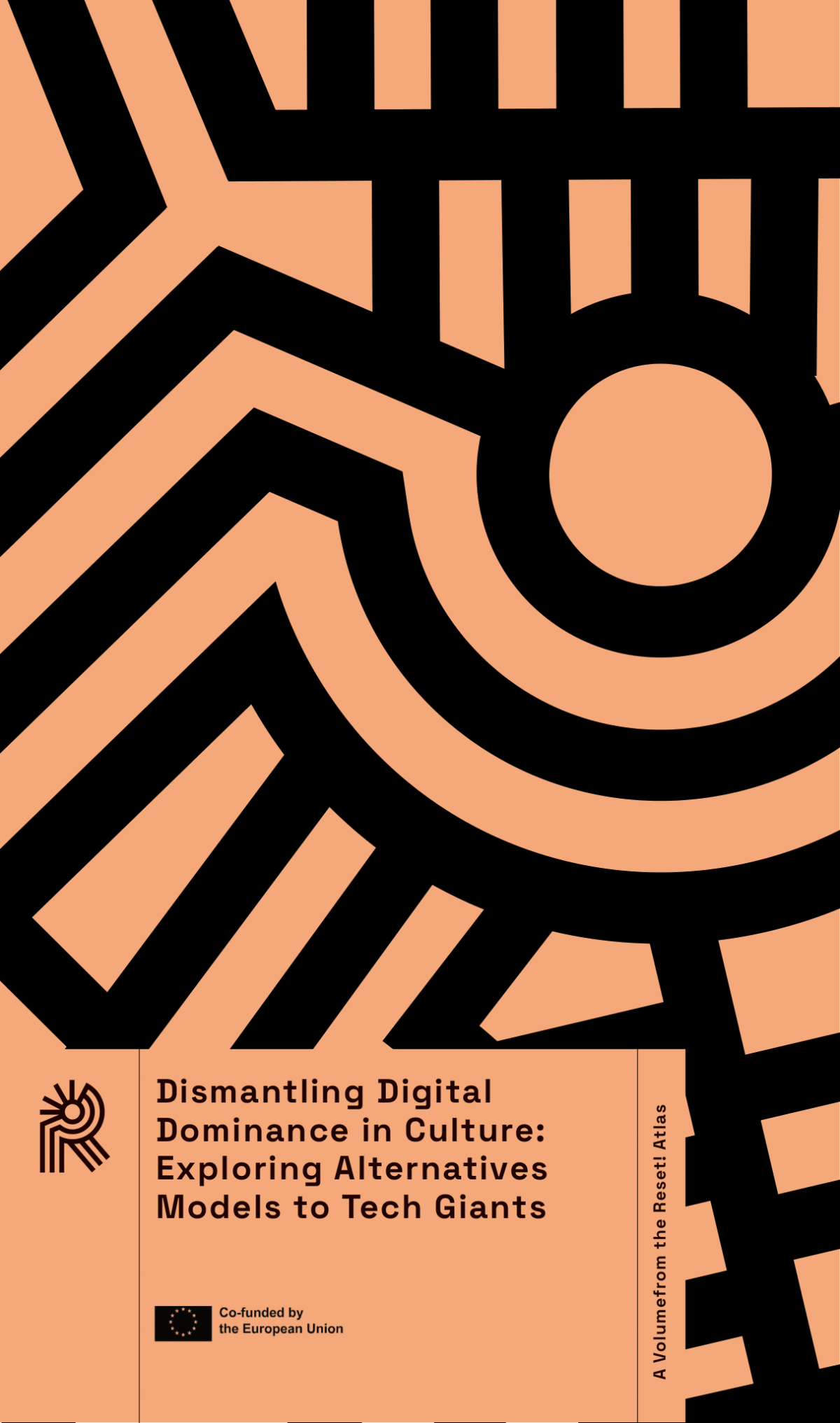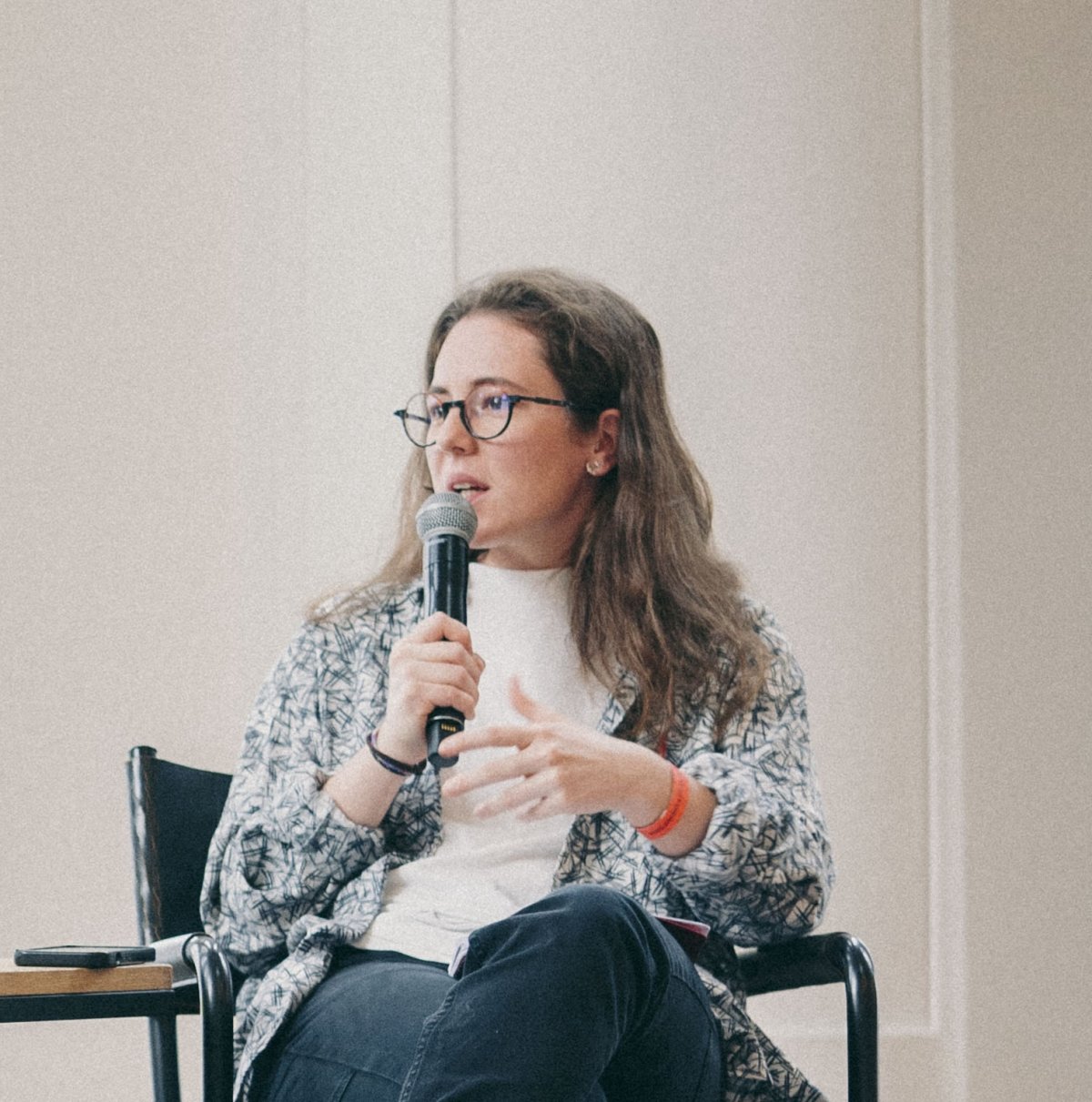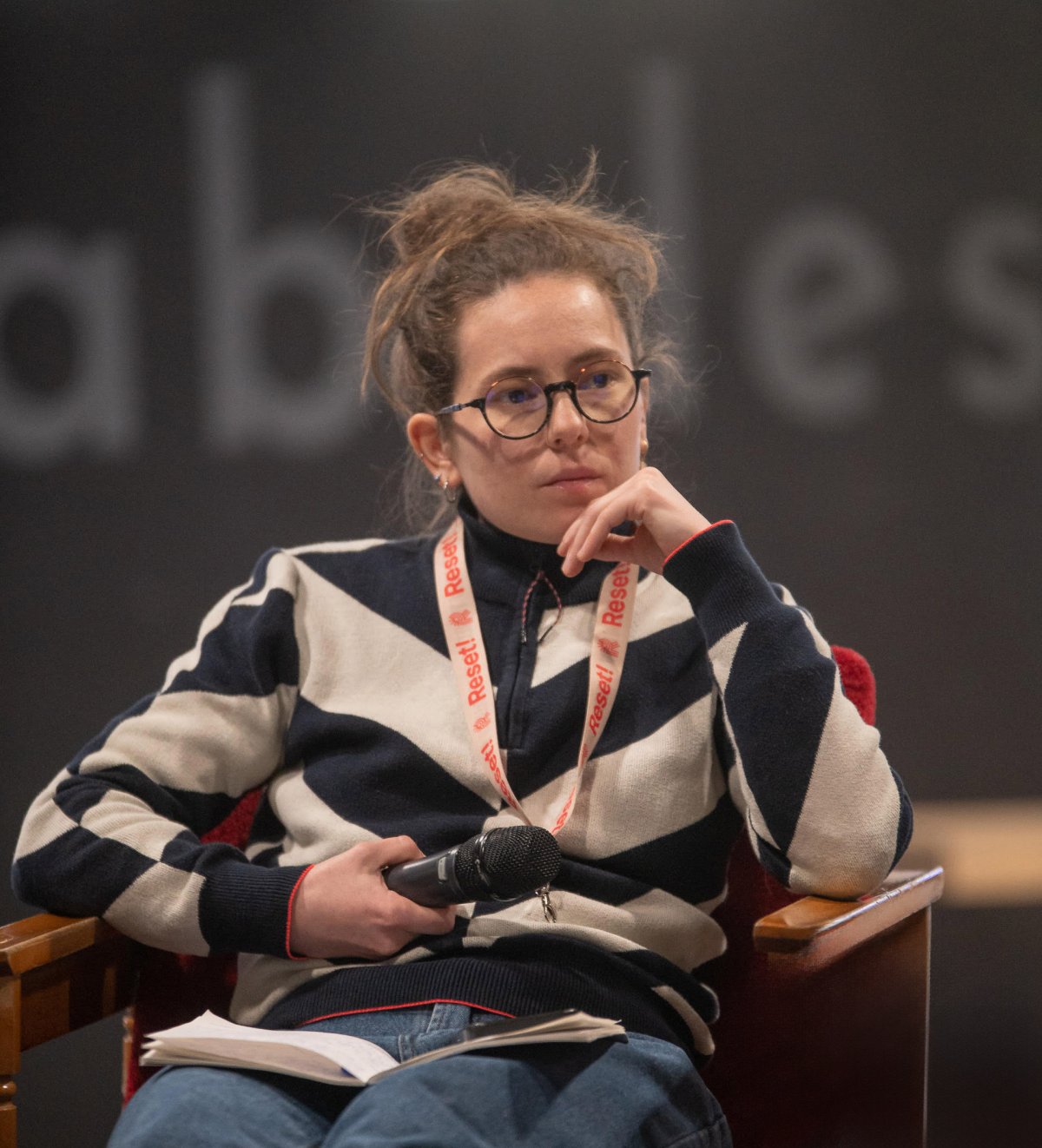The dominance of US-based platforms like Google, Facebook, and X (formerly Twitter) has not only shaped communication landscapes but has also raised profound questions about data privacy, algorithmic control, and cultural representation.
The European Union's Digital Services Act (DSA) and Digital Markets Act (DMA), implemented in 2022-2023, were early signals of a more assertive stance against tech monopolies. These regulations aimed to create a fairer digital environment, impose transparency requirements, and limit the market power of digital gatekeepers.
But this is not enough, according to Manon Moulin, editorial manager of Arty Farty and the Reset! Network who is trying to spark a movement among cultural and media workers demanding more ethical, decentralised digital infrastructures.
The Reset! Network's call for integrating digital ethical criteria, such as the concept of sustainability, into funding programmes like Creative Europe represents a strategic approach to accelerating this transformation.
The proposal advocates for a fundamental reimagining of digital ecosystems that prioritise European values of openness, diversity, and democratic participation.
Can we reimagine our digital landscape by prioritising open-source solutions, challenging the monopoly of giants like Google and Facebook, and promoting a more inclusive technological ecosystem? In this interview, Manon Moulin gives us a few hints on how we could do that.
C.U.: How did this initiative come about? When did it start and why?
Manon Moulin: There's been a growing discussion around social media and digital sovereignty in recent months, particularly since Trump returned to power in the US and Elon Musk took a more prominent political role. It's striking how problematic he and his associates in the digital capitalism sphere have become. However, the open letter we published a few weeks ago stems from a longer trajectory. At the Reset! Network, we believe that being independent is reflecting on your practices; you must question the tools you use daily. This creates a paradox for cultural workers today. Your work typically depends on selling tickets and drawing audiences to your events. To communicate these events, you inevitably use social networks like Instagram, Facebook, or LinkedIn. We've become co-dependent on these platforms, but with algorithms constantly evolving, this has become increasingly problematic. We need to find solutions that allow us to communicate with audiences and survive as cultural and media producers while maintaining more ethical practices and being conscious of what we do and which platforms we use. In that respect, we published an Atlas in May 2024, which included proposals for the EU to consider more ethical practices for cultural workers. And we followed with an open letter, published a year later, which represents the latest step in this long journey.
C.U.: You mention concrete steps, like European alternatives such as Mastodon. How do you envision this moving forward? What concrete steps could be taken?
Manon Moulin: When discussing this with different audiences, we encounter varying levels of knowledge about these topics. Despite everyone using these platforms, understanding isn't always widespread. Sometimes people don't realise how many alternatives already exist. There are plenty of solutions, tools, and infrastructure already available that are Europe-based. But being Europe-based isn't a virtue in itself—the virtue lies in being open source, ethical, and having a code of conduct. Our open letter isn't proposing a complete solution but rather suggesting that the European Commission, within its Creative Europe programme, should recognise and support efforts by organisations choosing to move away from US tech giants toward autonomous digital platforms. The concrete first step would be implementing digital ethical criteria, functioning similarly to the existing green criteria in Creative Europe programme applications. When you use environmentally friendly transport or solutions in your project, you receive additional points. The idea isn't to penalise cultural players who aren't ready for this change but to start conversations and create incentives. It's about collective awareness—being the model you want to see in society.
Europe is increasingly confronting a critical challenge: reclaiming technological sovereignty from tech giants.
C.U.: You've drawn this parallel between environmental sustainability and digital sustainability. Can you elaborate on how this principle would work? For it to be embedded in Creative Europe—which is under discussion right now—it needs to have universal principles. Environmental sustainability is universal, but the digital alternatives you’re proposing aren't necessarily universal.
Manon Moulin: That's why we're advocating for prioritising European solutions. This might be an argument that institutions are more receptive to. The EU is one of the world's most powerful institutions economically and politically, so why aren't we trying to regain our sovereignty? If we're having discussions about military dependency, why not talk about digital goods dependency too? European alternatives and platforms tend to be more ethical—they're usually open source. How can you not favour solutions developed on your continent? Then you can create a domino effect: if you implement criteria favouring European solutions, maybe European students working on digital projects will stay in Europe to develop more solutions, and maybe there will be funding for these initiatives. It's about creating your own economy in the field, which I believe aligns with current EU goals.

C.U.: What are the critical risks facing cultural and media organisations in the current digital dependency situation?
Manon Moulin: When we discuss digital authoritarianism, we mean that these companies are owned by individuals who impose their ideologies on their company's operations. Looking at the long term, algorithms have already changed over the years and are not promoting content that goes against the political positions of these leaders. We risk becoming completely marginalised—publishing content that will never circulate on these platforms. The activities we run within all the networks that signed this open letter are opposite to this. Our work promotes a diverse, open society that wants to advance social rights, LGBTQIA+ rights, BIPOC rights, etc. Today, we're navigating blindly in a sea of far-right posts promoting something completely different from what we're trying to defend.
C.U.: The letter was draughted around the time of major EU legislation like the Media Freedom Act and AI Act. How do you see these frameworks supporting the cultural sector's digital independence?
Manon Moulin: The timing is good. It shows that the EU is trying to address these issues, though the institution is coming to this rather late—we're in 2025, after all. Our goal is to seize this effort and push it further. These acts aren't very satisfying in terms of protecting journalists' rights and source confidentiality, for example. We see this as a first step where the EU has made up its mind about wanting legislation on media freedom and AI use, but now it's time to listen to workers actually in this sector. The legislation is iterative—why not seize the opportunity to incorporate knowledge and experiences from European cultural and media workers and build on what's already been established? Let's open a discussion where we can upgrade what can be done.
C.U.: Could social movements play a role in advancing these changes?
Manon Moulin: That's a tough question. The goal of many organisations, including ours, is to be stronger together. This advocacy scope is one way to create change in areas we're not completely satisfied with. Is advocacy sufficient to create this change? I hope so, but I can't say for sure. In conversations with institutions, we recognise that while the media sector in Europe benefits greatly from EU funding, legislation like the Media Freedom Act still isn't sufficient. There are always things that could be done better. As European citizens, it's healthy that we can always contribute to the conversation. It's not about complaining but about striving for continuous improvement. We’re doing this with public interest in mind—serving not only us, cultural workers, but everyone around us.

C.U.: Going back to the environmental sustainability analogy—if you could take examples from the Green Movement and apply them to media, that would be interesting to explore further.
Manon Moulin: Preferring open-source tools where no single person owns and can unilaterally change the direction of the tool is a universal starting point we should defend. One thing we discovered that illustrates the disconnect: the NLNET Foundation, which funds open source tools and projects, was co-funded by the EU. The situation seemed paradoxical, if not absurd: the EU supports a foundation that funds open-source technology projects while simultaneously funding other projects that could potentially use these same open-source tools, but they’re not. It reveals a disconnect between different EU funding initiatives, where the relationship and synergy between these efforts are not well-coordinated.
Images: Courtesy of the Reset! Network










